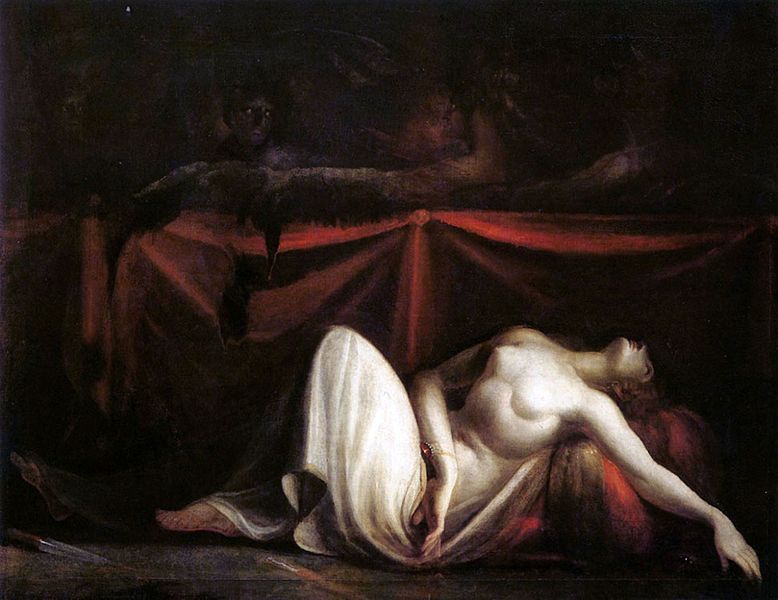ERIPHYLE IN GREEK MYTHOLOGY
Eriphyle was a female character of Greek mythology who appeared in the events linked to the Seven Against Thebes and the tale of Epigoni. Eriphyle is particularly famous for accepting bribes that put her husband and sons in harm’s way.
Eriphyle Sister of Adrastus
Eriphyle was born into one of the royal families of Argos for she was the daughter of King Talaus of Argos and his wife Lysimache; thus Eriphyle was the granddaughter of Bias, and also a sister to Adrastus.
Eriphyle Wife of Amphiaraus
Eriphyle would marry into another Argive royal family, for she would marry Amphiaraus, a noted seer, and grandson of Melampus.
Eriphyle would become mother to a number of children, the most famous of whom were two sons, Alcmaeon and Amphilochus. Additionally, there were daughters of Eriphyle commonly named including Demonassa and Eurydice, and potentially Alexida.
Eriphyle would become mother to a number of children, the most famous of whom were two sons, Alcmaeon and Amphilochus. Additionally, there were daughters of Eriphyle commonly named including Demonassa and Eurydice, and potentially Alexida.
The First Bribe for EriphyleAway from Argos, trouble was rumbling in Thebes, for Eteocles, son of Oedipus, was refusing to share the kingdom with his brother, Polynices. Adrastus would side with his new son-in-law Polynices, and an army was gathered to place Polynices upon the throne.
Eriphyle’s husband refused to join the expedition though, for as a seer, he knew his own death would follow if he did so. Polynices though came to Eriphyle to try and persuade her to convince her husband to join the war. Eriphyle accepted a bribe from Polynices in the form of the Necklace of Harmonia. The necklace was a treasure of Thebes, crafted by the gods, and presented to Harmonia upon her marriage to Cadmus. The bribe was sufficient for Eriphyle to convince Amphiaraus to take up arms. Now people may ask how Eriphyle was able to convince Amphiaraus to do something which he knew would result in his death, but Amphiaraus had previously pledged that Eriphyle would be the arbitrator between him and Adrastus if there was any disagreement; and so Amphiaraus was forced to keep his word. The Widow EriphyleEriphyle would of course be left a widow, for the expedition upon which Amphiaraus went is known as the Seven Against Thebes, a war which failed to achieve its aims, for the Seven, aside from Adrastus were killed in the war.
|
|
Some say of Amphiaraus charged his sons, Alcmaeon and Amphilochus with killing their mother, for Eriphyle’s betrayal of her husband.
The Second Bribe of Eriphyle
Ten years later Eriphyle was still alive, for a second expedition against Thebes was being arranged with the likes of Thersander, son of Polynices, and Adrastus to the fore.
A prophecy had been made though, which stated that success would come if Eriphyle’s son, Alcmaeon led the group known as the Epigoni (offspring). Thersander thus came to Eriphyle, and offered her a bribe, just as his father, Polynices, had done before. The bribe this time comes in the form of the Robe of Harmonia, and once again Eriphyle acquiesces, and Alcmaeon is persuaded to go to war.
A prophecy had been made though, which stated that success would come if Eriphyle’s son, Alcmaeon led the group known as the Epigoni (offspring). Thersander thus came to Eriphyle, and offered her a bribe, just as his father, Polynices, had done before. The bribe this time comes in the form of the Robe of Harmonia, and once again Eriphyle acquiesces, and Alcmaeon is persuaded to go to war.
The Death of Eriphyle
The Epigoni are successful in their attempt to take Thebes but upon his return home, it was said that Alcmaeon was instructed by Apollo to carry out his father’s wishes.
Eriphyle is thus killed by Alcmaeon, though the manner of her death is not expanded upon in surviving sources. Virgil, the Aeneid, tells of Eriphyle displaying the wounds inflicted upon her by Alcmaeaon in the Underworld.
For the act of matricide, Alcmaeon would be pursued by the Erinyes, despite the son of Eriphyle and Amphiaraus acting upon the words of Apollo.
Eriphyle is thus killed by Alcmaeon, though the manner of her death is not expanded upon in surviving sources. Virgil, the Aeneid, tells of Eriphyle displaying the wounds inflicted upon her by Alcmaeaon in the Underworld.
For the act of matricide, Alcmaeon would be pursued by the Erinyes, despite the son of Eriphyle and Amphiaraus acting upon the words of Apollo.
|
|
Colin Quartermain - Eriphyle - 7th July 2018
